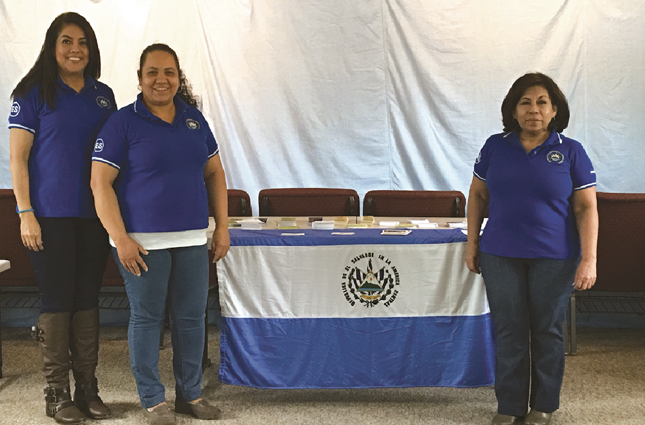|
The Consulate of El Salvador in Seattle estimates there are between 1200 and 1500 Salvadorans in Alaska. “Speaking of immigrants, it is difficult to give an exact number because people come and go” on a constant basis, said Consul Clary Monzón on July 29 during El Salvador’s mobile consulate in Anchorage.
In addition to issuing passports and survival records, and registering children as El Salvador’s citizens, Monzón’s priority was to inform the Salvadoran community in Alaska that “their government is safeguarding the interests of Salvadorans abroad, wherever they may be.” She urged the citizens of her country to trust that their consulate can help them regardless of their immigration status or the way they arrived in the United States. “They are not alone. We can look for alternatives that can help them.” To this end, the El Salvador Consulate in Seattle has agreements with organizations and government agencies that can assist Salvadoran immigrants. In the case of Alaska-based Salvadorans, for example, they recently received reports from the Washington Department of Labor and Industry of abuses by Alaska’s fisheries employers. Monzón encouraged Salvadorans who feel abused, who work strenuous hours without overtime pay, who are being threatened at their work for any reason—including their immigration status—or who do not have insurance provided by their employer, to approach the consulate for guidance. “As a consulate we can be the channel” to lead them with those who can help them, Monzón said. Regarding immigration concerns, the consulate usually refers Salvadoran citizens to the Northwest Immigration Rights Project, an organization that can assist Alaska’s residents when they are in the Tacoma Detention Center. When it comes to unaccompanied children crossing borders, they seek the support of KIND (Kids in Need of Defense), an organization that provides legal representation for immigrant and refugee children from Central America in a Deportation process. In this regard, Monzón said: “the consulate makes sure that their rights are respected,” and said that Salvadoran children are her priority. |
